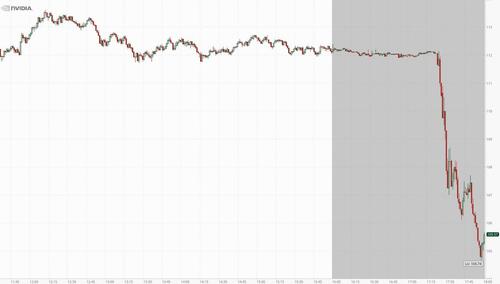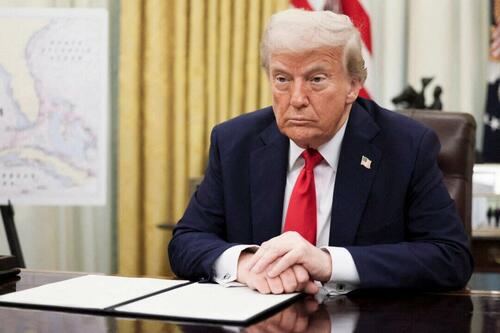
Federal Judge Halts Trump Admin’s Deportation Of Half A Million Biden „Parolees”
Authored by Jonathan Turley,
The intense struggle between the Trump Administration and federal judges continued this week with another court ordering a halt to a nationwide program. In Massachusetts, District Judge Indira Talwani is preventing President Donald Trump from canceling a Biden program granting parole and the right to work to immigrants from Cuba, Haiti, Nicaragua, and Venezuela (CHNV). Judge Talwani’s order would require individual hearings for the half of a million individuals allowed into the country under this program by President Joe Biden.

Under the announcement published in the Federal Register, the Department of Homeland Security officially moved to terminate the CHNV Program.
The announcement followed an Executive Order, signed on Trump’s first day in office, entitled “Securing Our Borders,” directing the DHS to end the CHNV program.
Under the notice, DHS said that the parole status would expire in 30 days “unless the Secretary makes an individual determination to the contrary.” It further mandated that parolees who had not obtained a legal basis to be in the United States, such as a green card or other visa, must depart the United States before their parole expires.
In the prior hearing, Judge Talwani indicated that she would not allow that to happen, stating that the Administration’s interpretation of the law was “incorrect” and that “[t]he nub of the problem here is that [Homeland Security Secretary Krisit Noem], in cutting short the parole period afforded to these individuals, has to have a reasoned decision.”
In her opinion, Judge Talwani wrote:
“If their parole status is allowed to lapse, plaintiffs will be faced with two unfavorable options: continue following the law and leave the country on their own, or await removal proceedings. If plaintiffs leave the country on their own, they will face dangers in their native countries, as set forth in their affidavits.”
The court also noted that leaving would cause family separation and jeopardize their ability to seek a remedy based on the Administrative Procedure Act.
The Administration argued that it did have a “reasoned decision” to end the CHNV program and weighed the cost to the parolees. It noted that the parolees were always going to face family separation and costs since this was just a temporary, two-year program. It asserted that it did weigh alternative periods for winding down the program. While the court may disagree with its conclusions, it asserts that it has the same discretion used by President Biden in creating the program.
There was another pressing reason for the change. If the parolees were allowed to run the course of the full period, those who did not obtain legal status could force formal removal proceedings rather than the expedited removal under the program.
The Justice Department maintained:
“DHS’s decision to terminate the CHNV program and existing grants of parole under that program is within this statutory authority and comports with the notice requirements of the statute and regulations,” they wrote. “Additionally, given the temporary nature of CHNV parole and CHNV parolees’ pre-existing inability to seek re-parole under the program, their harms are outweighed by the harms to the public if the Secretary is not permitted to discontinue a program she has determined does not serve the public interest.”
All of this presents another novel legal question. Parole is not a legal status under immigration laws. It is a status created by executive action and is now being curtailed under that same authority. However, these individuals came to the country under the promise of a two-year period. The question is whether a temporary program created by executive fiat can be treated as creating a type of vested right.
If Judge Talwani prevails, individual determinations of half a million cases would be an overwhelming burden on the Administration and easily run out the time granted under the program for these individuals.
Indeed, for many of the individuals, the appellate process could exceed that period.
The court is not weighing the harshness of the decision but the president’s discretion in making such a decision.
Judge Talwani suggests that, once created by President Biden, the program cannot be curtailed or shortened by President Trump.
That question could very well find itself on the Supreme Court’s ever-lengthening docket.

Tyler Durden
Tue, 04/15/2025 – 12:25
















